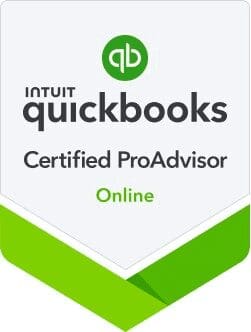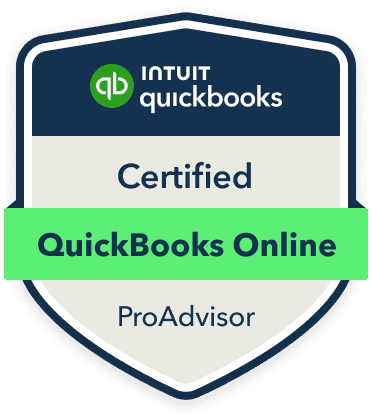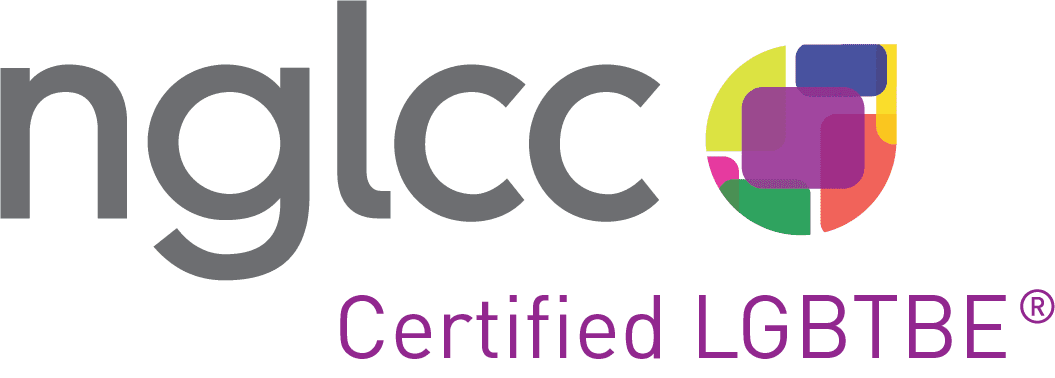Navigating tax law changes can feel overwhelming, especially in construction where purchasing decisions and hiring processes directly impact your bottom line. The One Big Beautiful Bill Act introduces significant tax updates that affect contractors like you, from equipment write-offs to reporting requirements and expiring credits. Understanding these changes is essential to maintaining healthy cash flow and maximizing your business’s tax benefits. Partnering with a knowledgeable Reno accountant can ensure you stay ahead and fully leverage the opportunities ahead.

One of the most impactful changes is the restoration of 100% bonus depreciation for property acquired after January 19, 2025. This update means you can immediately deduct the full cost of qualifying assets such as equipment, trucks, tools, furniture, and software in the year you place them in service. Previously planned to drop to 40%, this full first-year write-off frees up cash flow by accelerating your return on investment and reducing taxable income significantly. Taking advantage of bonus depreciation now allows your construction business to reinvest savings into operations or new projects without delay. Careful timing of your purchases in consultation with your Reno accountant will be critical to maximize these benefits.
With this restored depreciation, budgeting for capital expenditures becomes more strategic. Instead of spreading the deduction over several years, you gain immediate tax relief that improves financial flexibility. This is particularly valuable in construction, where equipment costs tend to be substantial and ongoing. The ability to fully write off qualifying property right away encourages timely investments that keep your business competitive. Consulting a Reno accountant can help identify which assets qualify and ensure the proper documentation for smooth tax filing.
Starting January 1, 2026, the threshold for 1099 reporting will increase from $600 to $2,000 for payments made to subcontractors. This change reduces the administrative burden by limiting the number of smaller payments requiring detailed reporting. For your construction business, this means less paperwork when paying many subcontractors less than the new threshold, streamlining your year-end reporting process. However, maintaining accurate expense tracking remains essential to support deductions and meet IRS documentation requirements. Partnering with a Reno accountant ensures you adapt your bookkeeping practices effectively under these new rules.
While the reporting burden lessens, vigilance is necessary in managing subcontractor payments and documentation. Proper records will safeguard your business during tax audits or compliance reviews. The threshold increase is designed to ease paperwork, but your systems should continue to reflect true expenses reliably. An experienced Reno accountant can help set up or refine your processes to capitalize on these simplified reporting rules while maintaining solid financial controls. This foundation supports both compliance and sound business decisions.
Several tax credits crucial to your construction operations now require valid Social Security Numbers (SSNs) for eligibility, including the Child Tax Credit, American Opportunity Tax Credit, and Work Opportunity Tax Credit. For your hiring process, this means you must collect and verify SSNs early and accurately from all employees and subcontractors. Meeting these requirements is essential to securing credits that can significantly reduce your tax liability. Failing to do so risks losing valuable benefits and could trigger IRS penalties. A Reno accountant can guide you through updated verification procedures to ensure compliance and maximize your credits.
It’s also important to let your employees and subcontractors know about these tightened SSN requirements in advance. Clear communication helps avoid delays, ensures accurate records, and reduces the risk of missed credits. By preparing your team ahead of time, you’ll streamline the verification process and keep everyone aligned on what’s needed. A Reno accountant can provide the right guidance so you capture these credits without unnecessary complications.
Several important energy-related tax credits will expire soon, including Clean Vehicle Credits on September 30, 2025, and residential solar credits at the end of 2025. Planning equipment or renewable energy project purchases now is critical to take advantage of these incentives before they disappear. For construction businesses, investing in qualifying clean vehicles or solar installations can reduce upfront costs through tax credits, improving project feasibility and environmental responsibility. A Reno accountant can help analyze your options and time purchases strategically for maximum credit capture.
Missing these deadlines means losing out on financial incentives that can lower your effective tax rate and enhance business sustainability. The approaching expiration dates create urgency for contractors to act swiftly. Careful tax planning minimizes lost opportunities and supports your long-term goals in efficiency and cost savings. Consulting a Reno accountant informs your decisions about timing, eligibility, and documentation, positioning your business for optimal advantage before these credits phase out.
Each of these tax law changes impacts your construction operations differently, but together they highlight the need for careful tax planning and expert guidance. Reviewing how the One Big Beautiful Bill Act affects your current and upcoming projects will help create a robust tax strategy tailored to your business goals. Timely consultation with a Reno accountant enables you to schedule equipment purchases, verify documentation for credits, and streamline reporting workflows. Contact Rought & Accounting today to review these critical tax updates comprehensively, prepare for efficient compliance, and leverage incentives that support your growth in the Reno construction market.
Running a roofing business is no small feat. From managing seasonal revenue swings to addressing rising costs and labor shortages, roofing contractors face unique financial challenges. However, strategic tax planning can help alleviate some of these burdens. By leveraging smart contractor accounting practices, roofing contractors can uncover tax-saving opportunities that not only reduce their tax liability but also improve cash flow and reinvestment potential.This guide explores seven legal tax loopholes tailored specifically for roofing contractors. These strategies, when implemented effectively, can help contractors keep more of their hard-earned money while ensuring compliance with tax laws.
The legal structure of your roofing business plays a significant role in determining your tax liability. Many roofing contractors start as sole proprietors or partnerships, but as the business grows, transitioning to a more strategic entity such as an LLC or S Corporation (S Corp) can yield substantial tax savings.
Choosing the right structure depends on factors such as income level, business size, and long-term goals. Consulting a tax professional ensures you select the structure that maximizes savings while protecting your assets.
Section 179 of the IRS Tax Code allows businesses to immediately deduct the full purchase price of qualifying equipment and property in the year it is purchased, rather than depreciating it over several years. For roofing contractors who regularly invest in tools, vehicles, and software, this deduction can be a game-changer.
By reducing taxable income upfront, Section 179 frees up cash flow that can be reinvested into growing your business.

Roofing contractors often rely heavily on vehicles for transporting tools and materials or traveling to job sites. The IRS provides two methods for deducting vehicle expenses:
Accurate record-keeping is essential for maximizing vehicle deductions. Whether using a mileage log or tracking expenses through accounting software, maintaining detailed records ensures compliance and maximizes savings.
If you use part of your home exclusively for business purposes—such as managing schedules or handling administrative tasks—you may qualify for a home office deduction.
This deduction helps roofing contractors reduce taxable income while making better use of their home workspace.
Hiring family members can provide both financial and tax benefits for roofing contractors. For example:
Ensure that wages are reasonable and work performed is legitimate to comply with IRS regulations.

Roofing contractors incur numerous job-specific expenses that are fully deductible:
Tracking these expenses diligently ensures you claim every eligible deduction while maintaining accurate financial records.
Tax-advantaged retirement accounts not only secure your future but also provide immediate tax benefits:
Maximizing retirement contributions reduces taxable income today while building long-term wealth.
For roofing contractors in Reno and beyond, staying on top of accounting practices is critical for identifying these tax-saving opportunities. Accurate bookkeeping ensures that all eligible deductions are claimed while avoiding costly mistakes or audits. Partnering with professionals who understand contractor accounting can make all the difference in optimizing your financial strategy. Rought & Accounting specializes in helping roofing contractors navigate complex tax laws while implementing strategies tailored to their unique needs. By leveraging their expertise in contractor accounting, you can focus on running your business while they handle the numbers.
Freelancing and self-employment offer flexibility and independence but also come with unique tax responsibilities. As a freelancer or self-employed professional in Reno, understanding tax considerations is crucial for optimizing your tax obligations and ensuring compliance with federal and state tax laws. This guide provides essential tax tips tailored for freelancers and self-employed individuals to help you manage your taxes effectively.

One of the first steps in tax preparation for freelancers and self-employed professionals is understanding the different tax forms you’ll need to file. Here are the primary forms you should be familiar with:
1099-NEC: This form reports non-employee compensation. If you earn $600 or more from a client, they will issue you a 1099-NEC. Keep track of these forms as they reflect your total income.
Form 1040: This is your main individual income tax return form. It summarizes your income, deductions, and tax credits.
Schedule C (Form 1040): This form is used to report income or loss from a business you operated or a profession you practiced as a sole proprietor.
Schedule SE (Form 1040): This form calculates your self-employment tax, which covers Social Security and Medicare taxes.
Understanding these forms is critical to accurately report your income and expenses, ensuring you don’t miss any important details.
As a freelancer or self-employed individual, you are responsible for paying your taxes quarterly. Unlike traditional employees, taxes aren’t automatically withheld from your payments. Here’s what you need to know about quarterly tax payments:
Significance: Quarterly payments help you manage your tax liability throughout the year, avoiding a large tax bill at the end of the year and potential penalties.
Calculation: Estimate your total tax liability for the year, including income tax and self-employment tax, then divide by four. Use Form 1040-ES to calculate and pay your estimated taxes.
Deadlines: Quarterly tax payments are due on April 15, June 15, September 15, and January 15 of the following year. Mark these dates on your calendar to avoid missing a payment.
Staying on top of your quarterly tax payments ensures you remain compliant and avoid unnecessary penalties.
Maximizing your deductions is key to reducing your taxable income and saving money. Here are some common deductions for freelancers and self-employed professionals:
Home Office Deduction: If you use part of your home exclusively for business, you may qualify for the home office deduction. Calculate the percentage of your home used for business to determine the deductible amount.
Travel Expenses: Business-related travel expenses, including airfare, lodging, and meals, can be deducted. Keep detailed records and receipts to support your claims.
Equipment and Supplies: Expenses for equipment, such as computers, software, and office supplies, are deductible. If the equipment is used for both personal and business purposes, only the business portion is deductible.
By understanding and claiming these deductions, you can significantly lower your tax liability.
Deciding on the right legal structure for your business can have important tax implications. Here are two common structures for freelancers and self-employed professionals:
Sole Proprietorship: This is the simplest structure, where you and your business are considered one entity. While easy to set up, it doesn’t provide liability protection, and your personal assets could be at risk.
Limited Liability Company (LLC): Forming an LLC provides liability protection, separating your personal and business assets. It also offers flexibility in how you are taxed, potentially allowing you to choose to be taxed as an S Corporation for tax savings.
Each structure has its benefits and drawbacks, so it’s important to choose the one that best suits your business needs and goals.
Choose the Right Software: Accounting software can significantly simplify your bookkeeping tasks. Selecting the right software tailored to your business needs can enhance efficiency and accuracy. At Rought & Accounting, we recommend QuickBooks Online for its comprehensive features and user-friendly interface. QuickBooks Online offers automated transaction recording, expense tracking, and financial reporting, making it an excellent choice for small businesses.
Utilize Automation Features: Take full advantage of the automation features offered by QuickBooks Online. Automated bank feeds, expense categorization, and recurring invoices can save you valuable time and reduce manual entry errors. By automating routine tasks, you can focus more on strategic financial planning and less on data entry.
Navigating the tax landscape as a freelancer or self-employed professional in Reno can be challenging, but understanding the basics can help you manage your taxes effectively. By familiarizing yourself with essential tax forms, staying on top of quarterly payments, maximizing deductions, and choosing the right legal structure, you can optimize your tax obligations and ensure compliance. For personalized advice tailored to your unique situation, contact Rought & Accounting. Our experienced specialists are here to help you make informed decisions and achieve financial success. Don't forget to subscribe to our newsletter for more financial insights and follow us on social media for real-time updates.
In the bustling world of business, having dependable accounting services is not just beneficial—it’s essential. For businesses in Reno and beyond, a looming national accountant shortage poses new challenges and strategic demands. This shortage, driven by an aging workforce, fewer graduates entering the profession, and shifts caused by the COVID-19 pandemic, is impacting businesses at all levels. During the pandemic, many professionals in accounting adapted to remote work. However, some firm owners were slower to embrace this change, leading to an acceleration in retirements across both public and private sectors. As accountants moved up or transitioned from public to private roles, it created significant gaps in the workforce. Understandably, this shortfall could affect your operations, planning, and financial management.

The Scope of the Accountant Shortage
Between 2019 and 2022, more than 300,000 accountants left the industry, intensifying the accountant shortage in the United States. The combined factors of an aging workforce, changes in workplace expectations brought on by COVID, and fewer professionals entering the field have left a significant void. As senior accountants retire, the shortage of qualified replacements means businesses must now reconsider their financial strategies and find alternative ways to handle essential accounting tasks. For Reno businesses, understanding this shortage is key to planning future financial operations and maintaining smooth financial management.
Impact on Reno’s Small and Medium Businesses
Small and medium-sized enterprises (SMEs) in Reno are particularly vulnerable to the accountant shortage. These businesses often operate with limited resources, making them more susceptible to challenges like delayed financial reporting, compliance issues, and hindered growth due to a lack of strategic financial guidance. The shortage forces businesses to consider alternative solutions, such as outsourcing their accounting functions or adopting more sophisticated software.
Adaptive Strategies and Solutions for Reno Businesses
Thankfully, there are adaptive strategies that businesses in Reno can adopt to mitigate the impact of the accountant shortage. Leveraging technology, such as advanced accounting software and automation tools, can help streamline financial tasks. Additionally, outsourcing accounting services to specialized firms can bridge the gap created by the shortage.
At Rought & Accounting, we offer personalized solutions tailored to help businesses navigate these turbulent waters effectively. Whether it’s providing expert advice or handling day-to-day accounting tasks, we ensure that your business continues to run smoothly despite the national shortage.
Economic and Educational Drivers Behind Reno's Accountant Shortage
The national accountant shortage is driven by both economic and educational factors. The demand for accountants has surged as businesses grow and financial regulations become more stringent. At the same time, fewer students are choosing accounting as a career due to perceptions that it lacks dynamism compared to other fields like technology. Moreover, the rigorous CPA exam further discourages potential candidates from entering the profession.
This shortage is further compounded by the inability of educational institutions to keep up with modern accounting technologies, such as artificial intelligence and blockchain, leaving new graduates underprepared for the demands of today’s accounting landscape.
Future Outlook of Accounting Careers in Reno
The future of the accounting profession is changing, with a growing focus on technology integration and evolving business environments. Automation, AI, and data analytics are becoming increasingly important, reshaping the role of accountants from traditional number crunchers to strategic business advisors. Accountants who adapt to these changes and stay ahead of technological trends will find themselves in high demand, especially as businesses continue to rely on their expertise for more complex decision-making processes.
Contact Rought & Accounting today to learn how our expert accounting services can help your business overcome the challenges posed by the national accountant shortage, ensuring your financial stability and success.
As tax season approaches, residents and small business owners in Reno often face the daunting task of organizing their financial affairs for timely and accurate tax filing. Whether you're a seasoned filer or tackling this responsibility for the first time, understanding the strategies that local tax preparers recommend can transform your tax preparation experience. Rought & Accounting in Reno, a trusted name in personalized tax services, offers insights that can not only streamline your tax process but also enhance your financial outcomes.

Maintaining organized financial records throughout the year is a crucial first step recommended by tax experts. This practice eases the burden of tax filing and ensures that all deductions and credits are properly accounted for. Understanding the nuances of these financial benefits, such as what qualifies for a deduction or a credit, can significantly impact your tax liabilities and returns. Moreover, honesty and accuracy in your financial records are paramount. These records form the foundation upon which tax professionals like those at Rought & Accounting base their evaluations and advice. Additionally, staying informed about the latest tax laws and updates can make a major difference in your tax preparation strategy, helping you avoid last-minute confusion and potential errors.
Maintaining an organized system for managing financial records is not just a necessity for businesses but also an empowering strategy for individual consumers. The ability to swiftly locate financial documents can save time and mitigate stress when handling unexpected financial situations or during tax season. Establishing a year-round organization system helps you stay on top of your financial health.
Start by determining what documents should be kept and for how long. Essential documents such as tax returns, major financial records, and legal contracts should be retained for a minimum of seven years. Other items like utility bills, credit card statements, and bank statements should be kept until you have confirmed the accuracy of the transactions and filed any related tax deductions. Organizing these documents into clearly labeled categories, whether digitally or in physical folders, makes retrieval straightforward and quick.
Digital organization has become a favored method due to its convenience and the added security features available. Using cloud storage solutions with encryption protects sensitive information from theft and environmental damage. Additionally, many financial institutions now offer digital statements and document storage that can be integrated into personal financial management software. This reduces physical storage needs and allows easy access across multiple devices with appropriate security measures in place.
Tax season can often feel overwhelming with its myriad forms and regulations. Yet, among the complexities, deductions and credits stand out as the superheroes of tax savings, directly reducing how much you owe to the state or federal government. These financial incentives encourage specific behaviors like investing in green technologies, pursuing higher education, or supporting charitable causes. While both reduce your tax burden, deductions lower the income you're taxed on, whereas credits decrease your tax bill dollar-for-dollar.
To effectively utilize deductions, it's crucial to understand the difference between standard and itemized deductions. The standard deduction, a set amount determined by your filing status, simplifies the process but might not provide the savings of itemized deductions, where you calculate relevant expenses. Common itemized deductions include mortgage interest, state and local taxes, and medical expenses exceeding a certain percentage of your income. Deciding whether to itemize or take the standard deduction depends on which scenario offers the greater tax benefit. Planning and record-keeping are essential to substantiate your deductible expenses.
For individual taxpayers, understanding personal tax credits can lead to significant savings. Common credits include the Earned Income Tax Credit (EITC) for low to moderate-income workers and families, the Child and Dependent Care Credit for parents incurring childcare costs while working or studying, and Education Credits for those pursuing post-secondary education. Each credit has specific qualifications and can sometimes be refundable, meaning they could reduce your tax liability below zero and result in a refund.
Business owners can also reduce their tax burden through credits aimed at fostering certain activities. For example, the Small Business Health Care Tax Credit helps small businesses and tax-exempt organizations afford the cost of covering their employees. Moreover, the Research and Development (R&D) Tax Credit incentivizes businesses of all sizes to pursue innovation within their industries. These credits not only lower tax liability but also support business growth and operational goals.
In essence, understanding the intricacies of deductions and credits is key to maximizing your tax refunds or minimizing what you owe. Whether you're an individual taxpayer or a business owner, consulting with a tax professional who can help you navigate the options and plan accordingly is wise. This knowledge aids in compliance with tax laws and optimizes financial performance, aligning strategically with personal and business finances.
In today's fast-paced business environment, maintaining accurate and honest records is not just a legal duty but a strategic asset. Accurate financial records are crucial for understanding your business’s financial health, making informed decisions, and ensuring compliance with tax laws and regulations. For Rought & Accounting, the importance of this cannot be overstated, as it significantly influences the firm's reliability and reputation.
Accurate record-keeping provides detailed and clear insights into the profitability and financial status of your business. It allows you to identify strengths, weaknesses, and opportunities for improvement. When your financial records are in order, assessing new strategies for growth becomes much easier. This practice helps in internal management and boosts consumer confidence, enhancing relationships with investors and creditors.
Moreover, accurate records reduce the chances of financial mismanagement and fraud. They act as a check and balance, ensuring that every transaction is accounted for and can be traced back to its source. For consumers, this transparency builds trust and assures them of your business’s integrity. Furthermore, such practices improve your standing with search engines, as online mentions of your company will likely be positive due to fewer financial discrepancies and customer complaints.
Tax laws are constantly evolving, making it imperative for consumers to stay informed about the latest changes that could affect their financial health. Tax law adjustments can have significant implications on personal finances, business operations, and investment decisions. Understanding these changes not only helps in complying with the law but also in optimizing tax liabilities. At Rought & Accounting, we dedicate ourselves to dissecting these complex alterations and simplifying them for our clients.
Every year, various adjustments to tax laws occur at both federal and state levels. These can range from shifts in tax brackets and changes in deductions and credits to new regulations affecting retirement savings or healthcare benefits. For individuals, this could mean different strategies for filing taxes, potentially leading to significant savings or avoiding legal penalties. For businesses, staying updated could affect everything from payroll to profit margins.
The main reason staying informed about tax law changes is essential is compliance. Failing to adapt to new laws can result in fines and penalties. However, the benefits extend beyond mere compliance. For individual taxpayers, understanding how new tax laws impact their deductions, credits, and overall tax liability can lead to substantial financial savings. For businesses, it can influence strategic decisions related to business structure, employee benefits, and expense management.
Moreover, tax laws are influenced by political and economic conditions, meaning they can change frequently and sometimes drastically during economic downturns or when new administrations take office. Consumers who stay informed can adjust their financial planning strategies accordingly to take advantage of beneficial changes and mitigate adverse effects from others.
Navigating the complexities of financial management can be challenging, especially for small to medium business owners in Reno who seek to maximize efficiency without compromising quality. Rought & Accounting offers expert bookkeeping services tailored to meet your specific needs. Our professional bookkeepers in Reno, NV, are skilled at refining your financial practices, leading to significant savings and improved business health.

With meticulous expense tracking, our bookkeepers ensure that every dollar is accounted for, thereby maximizing your potential tax deductions. This careful approach not only helps reduce your tax liabilities but also provides you with a clearer understanding of your financial status. Additionally, by implementing strategic financial practices, we help to minimize wasteful expenditures, enabling your business to allocate resources more effectively.
Efficient invoicing systems are essential for maintaining a healthy cash flow. Our services in Reno ensure that your invoicing is timely and accurately reflects the services provided, helping you get paid faster and more reliably. Regular financial reviews conducted by our experts keep your business strategies sharp and responsive to market changes. These assessments fine-tune your financial tactics, ensuring your business remains financially healthy and competitive.
Remember, effective financial management isn't just about cutting costs—it's about making smarter decisions that lead to long-term stability and growth. Contact Rought & Accounting today for a free consultation or to receive a quote on our transformative bookkeeping services. Let us help you optimize your financial strategies and save money, setting your business on the path to increased profitability.
Maximizing tax deductions significantly lowers your annual tax burden and enhances your financial health. Effective tax management requires meticulous record-keeping and a thorough understanding of deductible expenses. Detailed tracking simplifies the process at tax time and ensures you capitalize on every opportunity to reduce your taxable income.
Implementing a robust system for logging expenses can seem daunting, but modern tools and apps make this task manageable. Categorizing expenses as they occur prevents a massive sorting task at year-end, with categories such as transportation, home office expenditures, and professional fees potentially qualifying for deductions.
Effective financial management is crucial for any business's sustainability and growth. Strategic financial practices are essential in reducing wasteful expenditures and boosting overall company health. Implementing a robust budgeting and forecasting system helps businesses identify potential overspend areas, allowing for more efficient resource allocation.
Automation and integration of financial systems play a significant role in curbing waste. Modern financial software can detect inconsistencies that human analysts might miss, ensuring competitive pricing and preventing overordering. Regular audits and stringent controls further enhance financial integrity and prevent fraud.
Managing cash flow effectively is vital for the growth of any business. An efficient invoicing system ensures that businesses are paid promptly and minimizes the time spent on the billing process. Modern digital invoicing solutions automate many steps, reducing errors and speeding up the payment cycle. These systems can integrate with accounting software, facilitating real-time tracking and providing up-to-date financial reporting.
Regular financial reviews are crucial for maintaining and growing business wealth. These reviews allow business owners to stay on top of their finances, identify inefficiencies, and adjust strategies to better align with their goals. Regular assessments also help mitigate risks by ensuring that all financial decisions are based on up-to-date information.
Structured financial reviews, ideally with external experts such as financial advisors or accountants, ensure that your business strategies remain relevant and effective. Each review should result in actionable items that enhance financial health and empower businesses to navigate financial landscapes proactively.
Rought & Accounting understands the importance of building strong relationships with clients through reliable financial management. By offering tailored bookkeeping services, we ensure that businesses can focus on growth and long-term success. Our commitment to transparency, accuracy, and client satisfaction drives our approach to financial management, helping you build trust with your clients and stakeholders. Contact us today!
Tackling your taxes in Reno can seem daunting, but with the right strategies and understanding, you can significantly reduce your tax liability. Whether you're a freelancer, a small business owner, or an individual filer, knowing the basics of tax credits and deductions can help you save money and optimize your financial health. In this article, we explore several practical tax reduction tips for residents of Reno, Nevada. From leveraging fully refundable tax credits that might increase your tax refund to making informed decisions between standard and itemized deductions, our aim is to simplify these concepts and present them in a manner that's easy to digest and apply. Furthermore, with the increasing trend of working from home, we also delve into deductions specific to home office setups.

As we go further, I'll illustrate how to identify which tax credits can be fully refundable and how you can benefit from environmental tax credits through energy efficiency upgrades. Understanding these areas will not only better your chances of reducing your annual Reno, Nevada taxes but also improve your overall financial strategies. We encourage our readers to consult with a tax professional to effectively implement these strategies and ensure compliance with local Reno, Nevada tax laws. Keep in mind, the key to maximizing your tax return lies in understanding the details of these tax-saving opportunities. By the end of this guide, you'll be equipped with actionable advice tailored specifically for Reno, Nevada taxes.
Navigating the complex world of Reno, Nevada taxes can be daunting, particularly when it comes to understanding which tax credits can be fully refundable. Fully refundable tax credits are especially beneficial as they can reduce your tax liability below zero, leading to a tax refund. This is particularly relevant for residents of Reno, Nevada, where taking advantage of such credits can significantly impact your financial health. One of the most impactful fully refundable tax credits is the Earned Income Tax Credit (EITC). Designed to assist low-to-moderate-income working individuals and families, the EITC reduces the amount of tax owed and may also provide a refund. The amount of the credit is determined by income, filing status, and the number of children. Importantly, not only can it reduce the tax owed to zero, but if the credit exceeds the amount of taxes owed, the excess is refunded to the taxpayer. For many in Reno, Nevada, this makes the EITC a crucial tool in boosting their annual financial health. Another significant fully refundable credit is the Child Tax Credit (CTC), which was expanded significantly under recent legislation. For qualifying families, the credit provides substantial financial relief by offsetting the costs of raising children. With its recent expansion under the American Rescue Plan for the 2021 tax year, the CTC became even more valuable, with a portion being fully refundable. This means that families in Reno could receive a refund even if they didn’t owe any income tax.
Several factors can affect your eligibility for refundable tax credits and the amount you can claim. For the EITC, income and family size are the primary determinants. It is crucial for taxpayers in Reno, Nevada, to keep their income documentation updated and accurate to maximize their potential credit. Additionally, for the CTC, the age of the children and care expenses are also determinative factors. Knowing the nuances of these credits can make a substantial difference in your tax outcomes. Understanding these credits and applying them correctly can significantly impact the amount of your tax refund. Consulting with a tax professional or using trusted tax preparation software can help ensure that you are maximizing these opportunities while remaining compliant with Reno, Nevada taxes.
Understanding the difference between standard and itemized deductions is crucial for enhancing your tax savings, especially in Reno, Nevada. When you file your tax return, you have the option to choose between these two methods to reduce your taxable income. The method you choose can significantly affect your tax liability and potentially lead to substantial savings, depending on your financial circumstances. The standard deduction is a fixed amount that the IRS allows taxpayers to subtract from their income before income tax is applied. It changes from year to year, adjusted for inflation, and varies according to your filing status—single, married filing jointly, married filing separately, or head of household. This deduction is appealing because of its simplicity and the fact that it requires no detailed record-keeping or receipts.
On the other hand, itemized deductions require a taxpayer to keep track of allowable expenses throughout the year. These expenses can include mortgage interest, state and local taxes (SALT), charitable contributions, medical expenses that exceed a certain percentage of your income, and unreimbursed business expenses, among others. If the total amount of your itemized deductions exceeds the standard deduction amount, it may be beneficial to itemize your deductions to decrease your taxable income further. This is particularly relevant for residents in Reno, Nevada, where certain local taxes and deductions could impact your overall tax savings.
Deciding whether to take the standard deduction or to itemize will depend on your personal financial situation and how it aligns with Reno, Nevada's tax landscape. As a general guideline, if your itemized deductions are greater than your standard deduction, itemizing will save you money. However, calculating whether you benefit more from itemizing requires detailed record-keeping and a thorough understanding of what deductions are allowed. For many taxpayers in Reno, particularly those with mortgages or substantial deductible expenses such as medical bills or charitable contributions, itemizing deductions could result in a lower tax bill. Those who rent rather than own a home, or who live in states with low personal income tax, may find that the standard deduction saves them more.
It's also worth noting that recent tax law changes have affected the calculations for many taxpayers, including those in Reno, Nevada. For instance, the Tax Cuts and Jobs Act of 2017 significantly increased the standard deduction and placed limits on certain itemized deductions, such as the SALT deduction. As a result, fewer taxpayers may find it beneficial to itemize deductions compared to past years. To make an informed decision, consider both the amounts and the additional effort required for itemizing, particularly in the context of Reno's tax environment. Using software or consulting with a tax professional familiar with Reno, Nevada taxes can provide clarity, ensuring that you take full advantage of the deductions available and make the most financially sound decision.
The shift toward remote work has made home offices a common feature in many workers' lives. For those who have transitioned to working from home, either partially or fully, knowing how to properly handle home office deductions can lead to significant tax savings. It's important to understand the specific requirements set forth by the IRS to ensure eligibility and to maximize your benefits while maintaining compliance with Reno, Nevada taxes. Firstly, to qualify for home office deductions, the space must be used regularly and exclusively for business purposes. This means the area designated as your office cannot double as a part-time family room or a guest bedroom. The use must be consistent and solely for work-related activities. Eligibility also hinges on the role your home plays in your business—the space must be either your principal place of business or a place where you regularly meet with clients or patients.
Firstly, to qualify for home office deductions, the space must be used regularly and exclusively for business purposes. This means the area designated as your office cannot double as a part-time family room or a guest bedroom. The use must be consistent and solely for work-related activities. Eligibility also hinges on the role your home plays in your business—the space must be either your principal place of business or a place where you regularly meet with clients or patients.
Important Note: The home office deduction is NOT available to W2 earners. If you have a job and receive a W2 form, you do not qualify for this deduction. However, if you have any 1099 income, are a small business owner, or have a side hustle, you can use home office deductions to reduce your net income to zero. It's essential to note that while you can reduce your income to zero, you cannot go into a loss with those expenses.
Once you've established that your home office meets these criteria, you can begin to explore the deductions available. These typically include a portion of household expenses, such as utility costs, internet charges, and home maintenance, prorated based on the size of your home office as a percentage of your home's total area. This approach requires keeping thorough records of all relevant expenditures, which can be advantageous if your home office expenses are high. The IRS offers two methods for calculating home office expenses: the simplified option and the regular method. The simplified option allows for a standard deduction of $5 per square foot of your home used for business, with a maximum of 300 square feet, translating to a maximum deduction of $1,500 annually. This method reduces paperwork and simplifies the process, making it an attractive option for many. However, if you have significant home office expenses, the regular method might be more beneficial. This approach involves calculating the actual expenses associated with maintaining your home office. You'll need to determine the percentage of your home's total square footage that the office occupies and apply this percentage to your total home expenses. Categories eligible for full deductibility include directly related expenses such as painting or repairs solely for your office area.
Regardless of the method chosen, keeping detailed records is crucial. Receipts, utility bills, and records of home improvements should be meticulously maintained to support your deductions if ever questioned by the IRS. Planning and foresight can help optimize your tax return, ensuring you receive the maximum legitimate benefits from your home office arrangements in Reno, Nevada.
In today's eco-conscious market, homeowners and businesses are increasingly motivated to reduce their energy usage and enhance their property's efficiency. The benefits of making energy-efficient upgrades are manifold, encompassing not only reduced utility costs and increased property value but also significant tax advantages. U.S. federal and state governments, recognizing the importance of environmental sustainability, offer various tax credits that incentivize these improvements. Exploring these options can result in considerable savings while supporting ecological goals. Tax credits, unlike deductions, provide a dollar-for-dollar reduction in the amount of tax owed, thereby offering a more impactful financial benefit. For instance, the Residential Renewable Energy Tax Credit allows homeowners to deduct 26% of the cost of installing solar energy systems from their federal taxes for the year 2020, with the credit set to decrease to 22% in 2021 before expiring in 2022. Similarly, the Nonbusiness Energy Property Credit supports the installation of energy-efficient heat pumps, insulation, doors, and windows by offering a tax credit for 10% of the cost, up to $500.
To fully leverage these environmental tax credits, it is crucial for consumers to stay informed about the eligibility criteria and application process. The qualifications for tax credits can vary based on the specific improvements undertaken and the products installed. For example, not all energy-efficient appliances qualify for these credits, and the specifics can differ from one state to another. Thus, it is essential for taxpayers to consult the latest guidelines from the IRS or their state's taxation office or seek advice from professionals like Rough & Accounting. Homeowners in Reno, Nevada, should also be aware that some tax credits require the improvements to be on their primary residences, while others can extend to secondary homes or new construction. Keeping receipts and maintaining detailed records of all improvements are crucial steps to ensure the smooth processing of these tax benefits and compliance with Reno, Nevada tax laws. Furthermore, for those planning significant renovations, considering the timing and scale of purchases can be strategically beneficial in maximizing tax credits.
Secure Your Financial Future with Expert Tax Strategies
Understanding and implementing tax reduction strategies is essential for optimizing your financial health in Reno, Nevada. By leveraging fully refundable tax credits, choosing the right deduction method, and utilizing deductions for home office expenses, you can significantly reduce your tax liability. Additionally, taking advantage of environmental tax credits for energy efficiency improvements can provide further savings while contributing to a more sustainable future. However, navigating the complexities of Reno, Nevada tax laws can be challenging, so consulting with a tax professional is highly recommended to ensure you maximize your benefits and remain compliant with all regulations. With careful planning and informed decisions, you can achieve substantial tax savings and enhance your overall financial strategy.
For personalized tax advice and to learn more about how you can optimize your tax situation, contact us at Rought and Accounting. Our team of experts is here to guide you through every step of the process, ensuring you make the most of every tax-saving opportunity regarding your Reno, Nevada taxes. Reach out today to schedule a consultation and take the first step toward a more secure financial future.
As a freelancer, managing your finances can often feel like navigating through a maze. Without the proper bookkeeping practices, sustaining a lucrative freelancing career is challenging. Rought & Accounting understands this plight and offers tailored Reno bookkeeping services to help freelancers like you keep their finances in clear view. This article dives into four essential bookkeeping tips that are crucial for your financial success. By adhering to these guidelines, you'll not only make more informed decisions but also ensure your business thrives in the competitive freelancing world.
The cornerstone of sound financial management starts with accurate record-keeping. Learn how simplicity in your bookkeeping process can save you time and prevent major headaches during tax season. We'll show you practical strategies to streamline this aspect of your workload, making it less daunting. Enhance your financial literacy and confidence by understanding just what goes into maintaining impeccable records.

Navigating Through Tax Obligations
Taxes can be a freelancer's nightmare if not handled correctly. From determining your tax bracket to understanding various deductions you are entitled to, this section will provide essential information to demystify your tax obligations. Don't let taxes intimidate you; instead, learn how Reno bookkeeping services can turn this challenge into an opportunity for saving money and avoiding penalties.
Keeping a meticulous track of where your money comes from and where it goes is essential for any freelancer. This section will highlight tools and techniques to monitor your cash flow accurately, which is vital for assessing the health of your freelancing business and planning future growth.
Setting aside a portion of your income for taxes is a practice every savvy freelancer should adopt. We’ll discuss how much to save, when, and where to keep this money to make the most of your hard-earned dollars.
By applying these simple yet effective strategies, you can streamline your finances and enhance the success of your freelancing career. Rought & Accounting is here to assist with all your bookkeeping needs, offering expert guidance tailored to freelancers in Reno. Don't navigate your financial journey alone—reach out to us today to schedule a consultation and discover how our Reno bookkeeping services can help you stay on top of your finances, avoid costly mistakes, and maximize your earning potential. Subscribe to our newsletter for more tips, and don’t forget to download our free e-book on financial management tailored specifically for freelancers.
Tax day can be a daunting task for many, but with proper preparation, it doesn’t have to be overwhelming. At Rought & Accounting in Reno, we specialize in tax preparation services designed to help you navigate the complexities of tax season with ease. Here’s a personal checklist to guide you through the essential steps to ensure you’re fully prepared for tax day, maximizing your returns and ensuring compliance.
The first step in preparing for tax day is to gather all your financial documents. Having these documents organized and ready will make the process smoother and more efficient.
Make sure to have your W-2s from employers, 1099s for any additional income, and receipts for deductions such as medical expenses, charitable contributions, and business expenses. These documents provide the necessary information to accurately report your income and claim deductions.
Don’t forget to include records of investments, retirement accounts, and interest earned. These documents help in providing a complete picture of your financial situation and ensuring all taxable income is reported.

Reviewing your previous year’s tax return is a crucial step in preparing for the current tax season. It helps you understand what information was previously required and identify any changes in your financial situation.
Look for any significant changes in income, deductions, or credits. This can include changes such as a new job, additional income sources, or changes in your filing status.
By comparing last year’s return with this year’s information, you can ensure accuracy and avoid potential mistakes. This review process helps in identifying any missed deductions or credits that could benefit you.
Maximizing your tax return often depends on understanding and utilizing available deductions and credits. These can significantly reduce your taxable income and increase your refund.
Familiarize yourself with common deductions such as those for mortgage interest, student loan interest, and education expenses. Additionally, tax credits like the Earned Income Tax Credit (EITC) and Child Tax Credit can provide substantial savings.
Consider deductions and credits specific to your financial situation. For example, if you are self-employed, you may be eligible for home office deductions, business expenses, and health insurance deductions.
Planning for any tax payments you may owe or deciding how to invest or use any potential refunds is the final step in your tax preparation.
If you anticipate owing taxes, plan how you will make these payments. Consider setting aside funds throughout the year to avoid a large payment at tax time. Rought & Accounting can help you set up an installment agreement if you are unable to pay your taxes in full.
If you expect a refund, decide how best to use it. Whether it’s investing in a retirement account, paying down debt, or saving for future expenses, having a plan ensures you make the most of your refund.
For personalized tax preparation services in Reno, contact Rought & Accounting today. Our team of experts will guide you through the tax preparation process, ensuring accuracy and maximizing your returns. Contact us to learn more about our specialized services and schedule a consultation.
Understanding the differences between financial accounting and management accounting can help business owners and financial managers make more informed decisions. At Rought & Accounting in Reno, NV, we provide expert advice to guide you through these distinct accounting practices. Let’s explore the key differences and how each can benefit your business.
The primary purpose of financial accounting is to create financial statements that provide information to external stakeholders. These stakeholders include investors, creditors, and regulatory bodies. Financial accounting helps them understand the financial health and performance of your business.
In contrast, management accounting is designed for internal decision-making. It provides detailed financial and non-financial information to managers to help them make strategic business decisions. This can include budgeting, forecasting, and performance analysis. Management accounting is more about providing actionable insights than adhering to external reporting standards. At Rought & Accounting, we not only want you to learn about these differences, but OMG, we've got a certified person on staff for this very thing! Judi, our Certified Management Accountant (CMA), is here to guide you through every aspect of management accounting.

Financial accounting is primarily retrospective, dealing with historical data. It compiles and reports past financial transactions. This historical perspective allows external stakeholders to see how the company has performed over a specific period. It is essential for compliance and financial transparency.
On the other hand, management accounting is forward-looking. It focuses on future projections and current data to assist in planning and decision-making. Managers use this information to set future goals, allocate resources, and plan for potential challenges.
Financial accounting must adhere to strict regulations and standards, such as Generally Accepted Accounting Principles (GAAP) or International Financial Reporting Standards (IFRS). These standards ensure consistency, reliability, and comparability of financial statements across different organizations. Compliance with GAAP or IFRS is mandatory for financial accounting. These standards provide a framework for preparing financial statements, ensuring they meet legal and regulatory requirements. This consistency is crucial for external stakeholders who rely on these reports for decision-making.
In contrast, management accounting is more flexible and not bound by these strict standards. Managers can tailor reports to meet the specific needs of the business. This flexibility allows for more detailed and relevant information that can drive better decision-making.
Financial accounting often provides a summarized view of the overall business performance. It aggregates data to present a clear picture of the company’s financial health. The reports generated through financial accounting offer a high-level overview of the company’s performance. This summary is useful for external stakeholders but may lack the detailed insights needed for internal decision-making.
Management accounting, however, involves a deeper, more detailed analysis of business metrics. Managers use this detailed information to make strategic decisions that affect the company’s operations and future growth. This in-depth analysis helps in identifying areas of improvement and opportunities for efficiency.
Accounting software can significantly simplify your bookkeeping tasks. Selecting the right software tailored to your business needs can enhance efficiency and accuracy. At Rought & Accounting, we recommend QuickBooks Online (QBO) for its comprehensive features and user-friendly interface. QuickBooks Online offers automated transaction recording, expense tracking, and financial reporting, making it an excellent choice for small businesses.
Take full advantage of the automation features offered by QuickBooks Online. Automated bank feeds, expense categorization, and recurring invoices can save you valuable time and reduce manual entry errors. By automating routine tasks, you can focus more on strategic financial planning and less on data entry.
Understanding the differences between financial and management accounting can significantly impact your business strategy. For personalized accounting services tailored to your business needs, contact Rought & Accounting in Reno, NV. Our tax experts, are here to help you navigate these accounting practices and ensure you make informed decisions. Contact us today to learn more about our services and schedule a consultation today.



